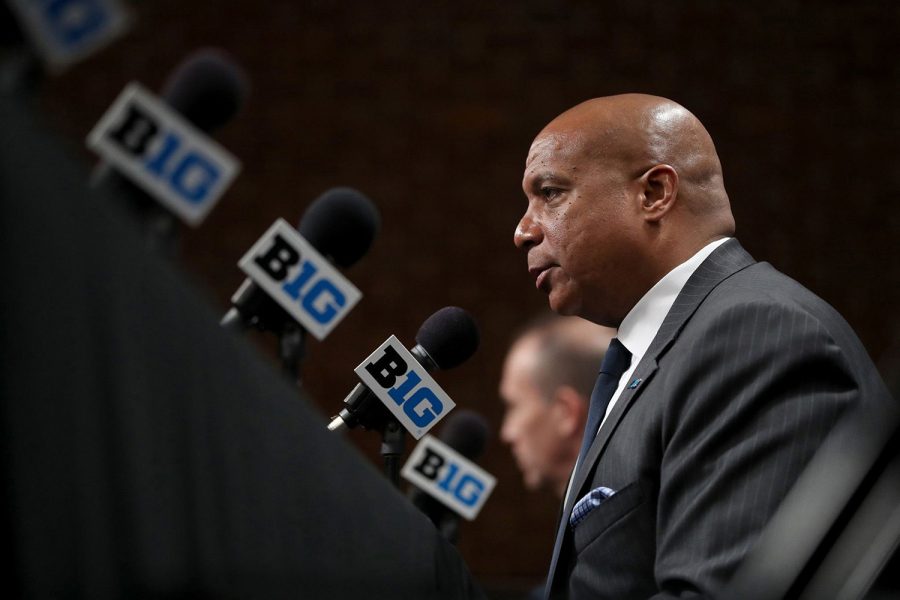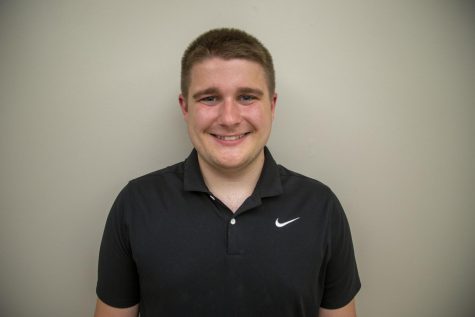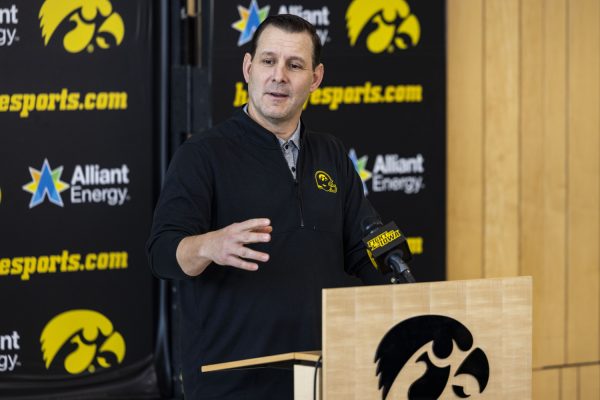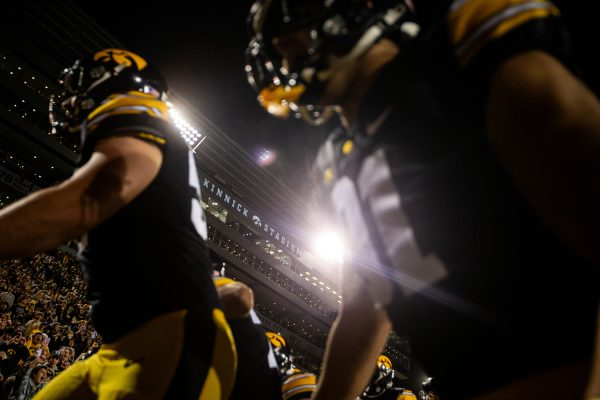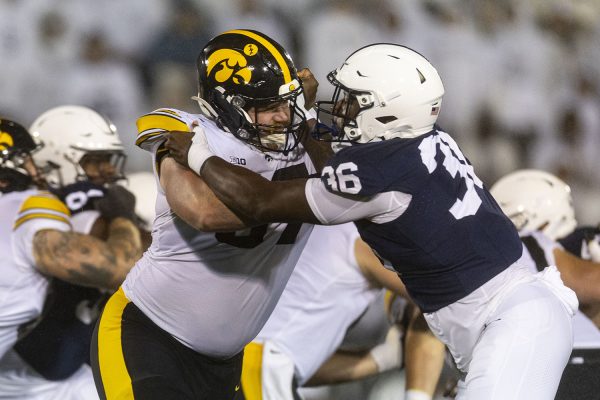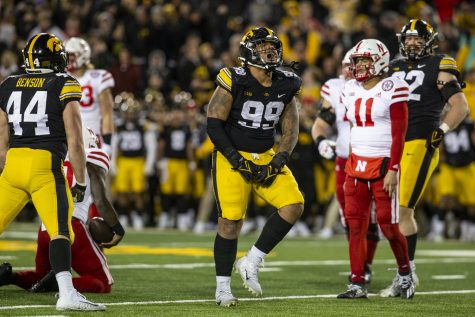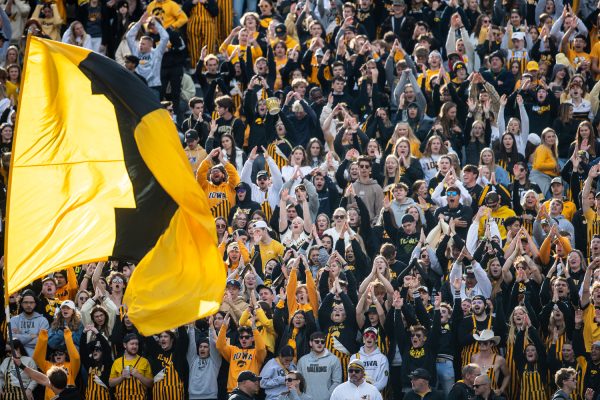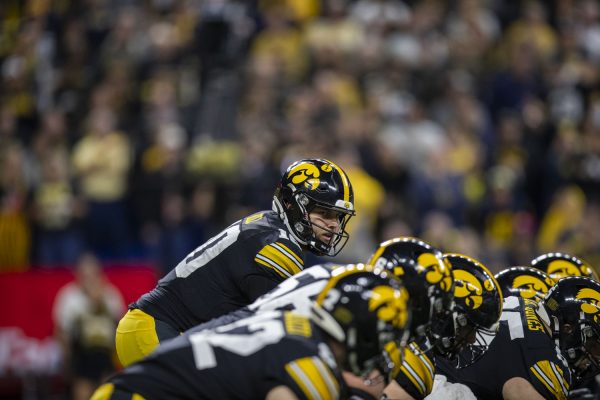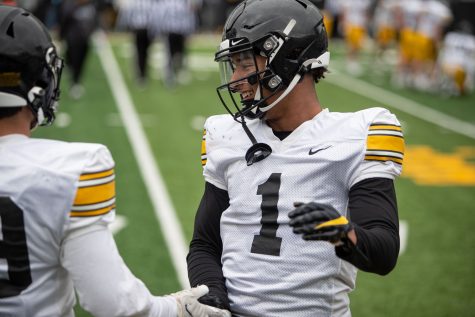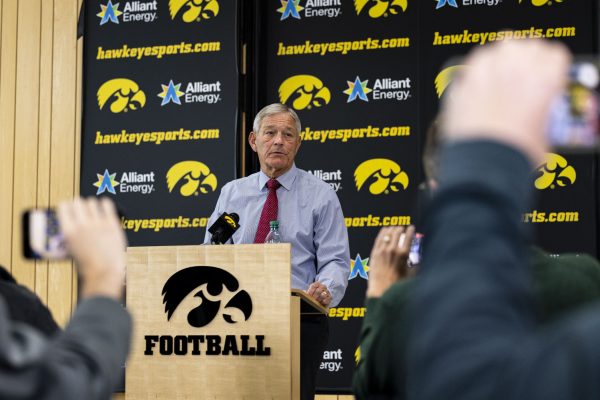Big Ten schools to collectively share cost of rapid COVID-19 tests
Iowa Athletic Director Gary Barta said the conference has “handshake agreements” in place with a few companies, but did not speculate how much the tests will cost.
Big Ten commissioner Kevin Warren speaks about the cancellation of the men’s basketball tournament at Bankers Life Fieldhouse in Indianapolis, Ind., on Thursday, March 12, 2020.
September 17, 2020
Iowa Athletic Director Gary Barta said on a video conference Thursday that all 14 Big Ten schools will collectively share the cost of rapid COVID-19 testing equally.
When the Big Ten announced on Wednesday that its Council of Presidents and Chancellors had unanimously voted to resume its football season on Oct. 23-24, the conference said it had adopted significant medical protocols, which included daily antigen testing.
Barta said the cost of these tests will be significant. The Big Ten has “handshake agreements” in place with a few companies for rapid tests, but Barta would not speculate how much they will cost.
The Big Ten had postponed all fall sports on Aug. 11 because of ongoing concerns with COVID-19. Following that announcement, the conference’s football season was expected to occur in the winter or spring. The access to rapid testing, Barta said, was a major factor in the conference voting to start a season in October.
“That was the game-changer,” Barta said. “Having the availability, the reliability, the opportunity to test daily was a game-changer for this decision. Now what we have to do is put that in operation. Every campus has to have that daily testing in operation before we move forward.”
The Big Ten will require athletes, coaches, trainers, and other individuals that are on the field for all practices and games to undergo daily antigen testing.
Rapid antigen tests are commonly used in the diagnosis of respiratory pathogens. This diagnostic test looks for the coronavirus in samples taken from the throat or nasal swab to determine if the individual has an active infection.
Test results must be completed and recorded prior to each practice or game. Daily testing will be available to football programs around the conference by Sept. 30.
Other sports will also have access to testing — eventually.
“The first team that’s going to compete at the University of Iowa is football,” Barta said. “So, we’re going to get that protocol and that process all set… What the presidents are saying is everybody must be tested daily once you get in your competitive environment. We haven’t decided yet if the testing daily will begin sooner than that.”
The earliest an athlete can return to game competition is 21 days following a COVID-19 positive diagnosis.
Teams must stop regular practice and competition for a minimum of seven days and reassess metrics until improved if the team’s positivity rate is greater than five percent or if the “population’s positivity” rate is greater than 7.5 percent.
The population metric does not refer to the student body positivity rate or the positivity rate of the county, Barta clarified.
“The five percent rolling average every seven days is about what percentage tested positive during those seven days. Now, when someone tests positive they go into a protocol that lasts longer than seven days, so you accumulate the number of people who are in that potential positive count. That, at any time, has to be below 7.5 percent.”
The site where the Iowa athletic department’s daily tests will be processed is still to be determined. The department has not yet named its Chief Infection Officer, who will oversee the collection and reporting of data for the Big Ten Conference
Since the Big Ten announced a football season would occur this fall and the level of testing that would be available to athletes and coaches, the conference received criticism from students who won’t have the same access to testing.
Barta attempted to justify athletes having more access to COVID-19 testing than the rest of the community, claiming the “student-athlete experience is different than the general student.”
“If I were coming into our buildings right now, I could social distance, I could make choices, I could do online classes,” Barta of UI students. “If you’re going to have practice, if you are body-to-body sweating and breathing together, that’s a unique situation and one that, in order to pull that off, requires additional testing and a different way of going about things.”



